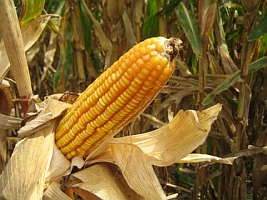The German chemical company BASF says it will move much of its plant science R&D work to the U.S. to take advantage of a more favorable regulatory climate than in Europe. The company expects to relocate its facilities in Limburgerhof, Germany and elsewhere in Europe to a new site in Research Triangle Park near Raleigh, North Carolina.
According to BASF, the hostility to plant biotechnology in Europe is forcing the company to concentrate its R&D activities on markets in the Americas and Asia. “[T]here is still a lack of acceptance for this technology in many parts of Europe, from the majority of consumers, farmers and politicians. Therefore, it does not make business sense to continue investing in products exclusively for cultivation in this market,” said Dr. Stefan Marcinowski, who serves on BASF’s Board of Executive Directors and is responsible for plant biotechnology.
BASF also plans to close its plant biotechnology sites in Gatersleben, Germany, and Svalöv, Sweden, affecting 63 positions. The company now has 157 employees working in its plant science division in Limburgerhof. It says it will transfer 123 positions from Limburgerhof and Gatersleben to other BASF plant science sites, mainly to Raleigh, and cut 78 other positions over the next two years. However, the company plans to keep intact its R&D labs in Ghent, Belgium and Berlin, Germany.
The Plant Science division will halt development and commercialization of all products targeted for cultivation only in European markets, which include Amflora, Amadea, and Modena genetically modified starch potatoes. The company will also stop developing Fortuna, a potato resistant to late blight disease, as well as a late blight resistant starch potato and a wheat variety resistant to fungal disease. The company will, however, continue the regulatory approval processes for those products already underway.
BASF says it will continue projects in which crops are developed with higher yields and improved resistance to stress conditions like drought, which includes a collaboration with Monsanto for corn, soy, cotton, canola and wheat. At the end of 2011, says the company, the first product from this partnership — drought-tolerant corn — was approved for cultivation in the United States.
Read more: Cellulosic Biomass Sugars Developer Gains BASF Backing
* * *


 RSS - Posts
RSS - Posts
[…] Read more: BASF to Move Plant Biotech Work to U.S. from Germany […]
[…] BASF to Move Plant Biotech Work to U.S. from Germany […]